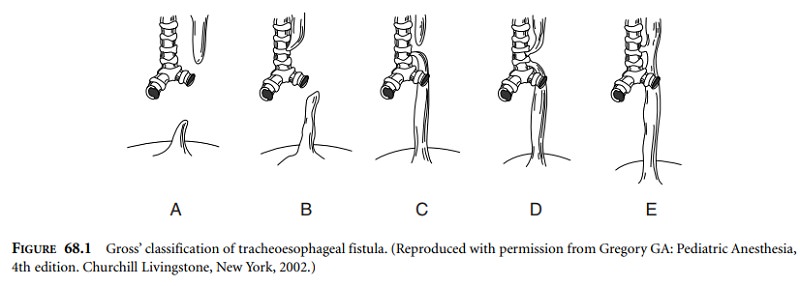Chapter: Clinical Cases in Anesthesia : Tracheoesophageal Fistula
What is a tracheoesophageal fistula (TEF)?
What is
a tracheoesophageal fistula (TEF)?
The
most common classification system
of tracheoesophageal fistulas,
illustrated in Figure 68.1, is that of Gross. The incidence of esophageal
atresia (EA) and TEF is approximately
1 in 3,000
births. Table 68.1
provides a description of the
various types of TEF and their approximate incidence.

Embryologically, the trachea and esophagus both
originate from the ventral diverticulum of the primitive foregut. They normally
become separated by the eso-phagotracheal septum. Since the trachea is situated
ante-rior to the esophagus, the fistula is located on the posterior aspect of
the trachea and usually just proximal to the carina.

Related Topics